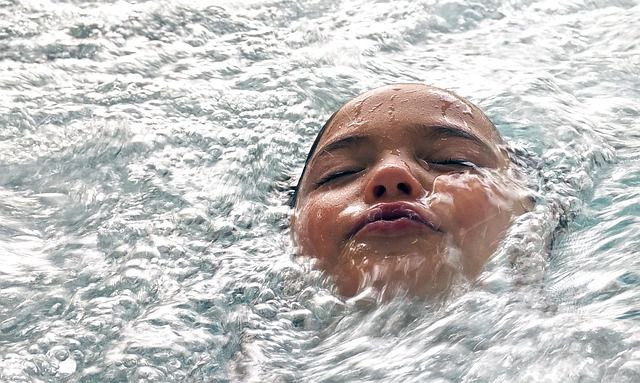Pool Safety: 4 Dangers Of Swimming, From Infections To Asthma

With the summer season about to head into the final stretch, there’s sure to be plenty of temptation to venture out to the swimming pool for one last cooling-off session.
While swimming is among the healthiest and most fun ways to stay active, there are some dangers and health risks that every avid cannonballer and water polo fan should know. Let’s take a look at a few.
Risky Lenses
Earlier this August, the Centers for Disease Control and Prevention (CDC) released a report detailing the many ways that contact lenses can cause eye infections.
One contributing factor is simply leaving them in while swimming. Out of the 1,000 or so reports of contact lens-related infections the CDC looked at from 2005 to 2015, 0.9 percent happened from someone wearing lenses while swimming. It’s estimated that eye infections lead to 1 million clinic and emergency department visits annually, with improper contact lens use being a big slice of that pie.
Of course, the possibility of swimming pool infections isn’t something that only people who wear contact lenses have to worry about.
Dirty Water
Swimming pools are routinely treated with chlorine and other disinfectants, but the chances of contamination are still ever-present, especially in pools that are poorly maintained.
Indeed, the problem may be even grosser than you’d imagine. A 2013 CDC report found that 58 percent of tested public pools contained E. coli and other bacterial species, which almost certainly came from other people’s fecal matter. Though E. coli is harmlessly found in our guts most of the time, certain strains are known to cause disease throughout the body, from stomach flus to urinary tract infections.
Thankfully, the samples didn’t contain the most dangerous strains of E. coli and the researchers couldn’t determine if or how often the specific bacteria found in their samples would be capable of making people sick. Still, outbreaks of disease tied to contaminated pools routinely occur, including most recently this August in Phoenix, Arizona. More than 100 state residents as of now have been sickened by the microscopic parasite cryptosporidium, which can survive around a week in chlorinated water. The parasite (called ‘crypto’ for short) can cause a disease known as cryptosporidiosis that leaves sufferers with diarrhea, stomach cramps, and fever.
Overchlorination
Nasty as swimming pool infections can get, the chlorine we use to treat our pools is somewhat of a double-edged sword. Too much exposure to the chlorine found in pools can also trigger a myriad of health problems.
Several studies have linked swimming pool chlorine to a greater risk of asthma and other allergies, the erosion of tooth enamel, and possibly even certain forms of cancer. For the most part, the scale of these added risks is relatively small, and when it comes to cancer, still very much speculative. But they’re especially a danger in overchlorinated pools. Accidentally swallowing pool water might also explain many of these health effects. And the act of peeing in the pool may only worsen the problem, since the combination of urine and chlorine can create disinfectant byproducts, responsible for the telltale smell of pools and which causes our eyes to turn beet red while swimming,
Drowning
Sure, it’s a gimme, but drowning remains the clearest danger when venturing out to the pool, especially for children from the ages of 1 to 4.
According to the CDC, more than one-third of accidental deaths in this age group were caused by drowning in 2014, with the majority of deaths happening in home swimming pools. In total, it’s estimated that 10 people die on average every day from drowning, making it the 5th leading cause of accidental death in the United States.
The risk of drowning is especially heightened among people of color, with African American children aged 5 to 19 years 5 times more likely die via drowning than their white counterparts. This might be due to inexperience with swimming, since African Americans are less likely to have regular access to swimming pools and water-based activities or to take formal swimming lessons.
Read More:
Is Peeing In The Swimming Pool OK? How Cleaning Products React With Urine. Read here.
As Summer Nears, CDC Warns Of Health Violations At US Public Pools. Read here.
Published by Medicaldaily.com



























